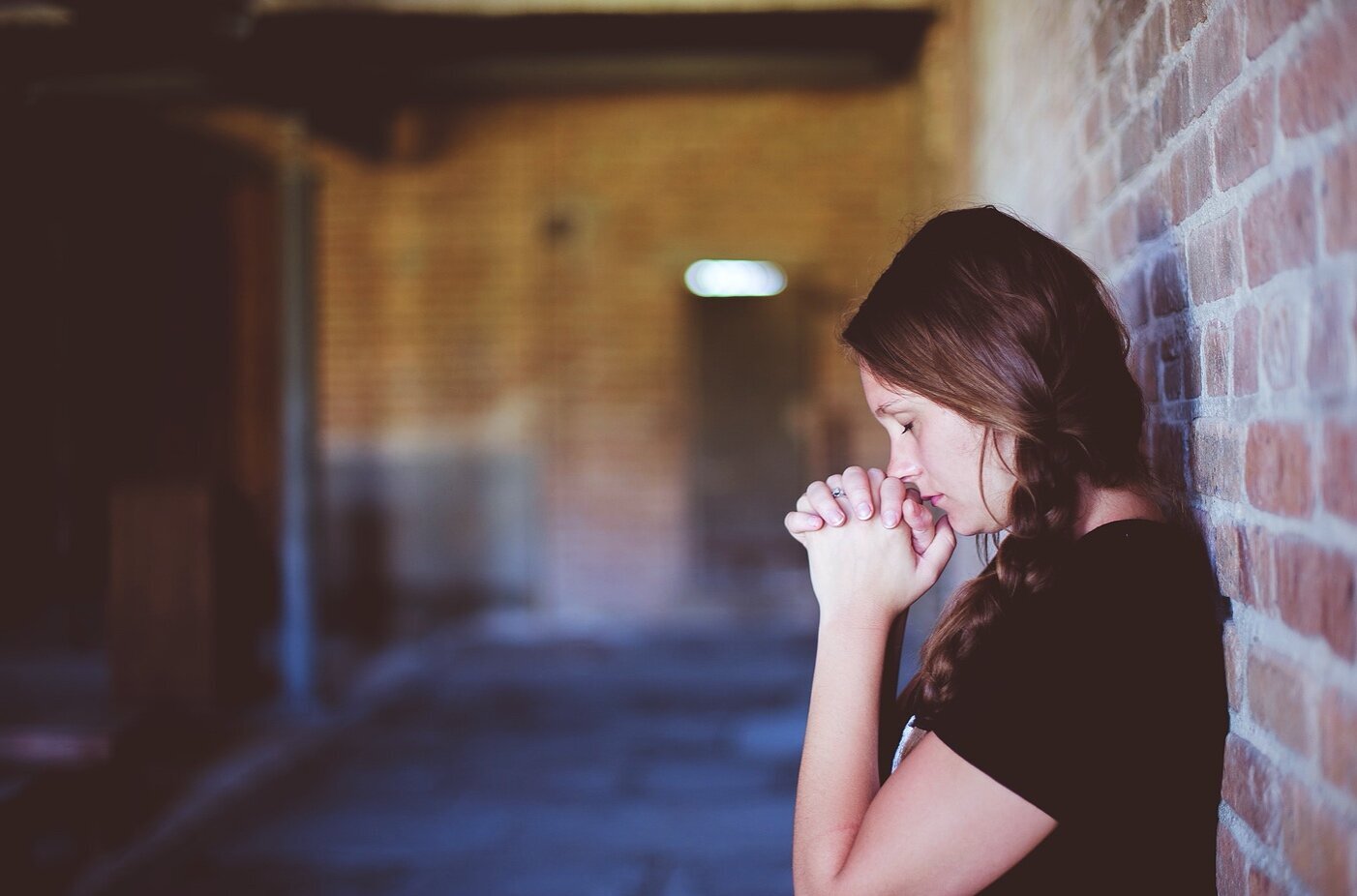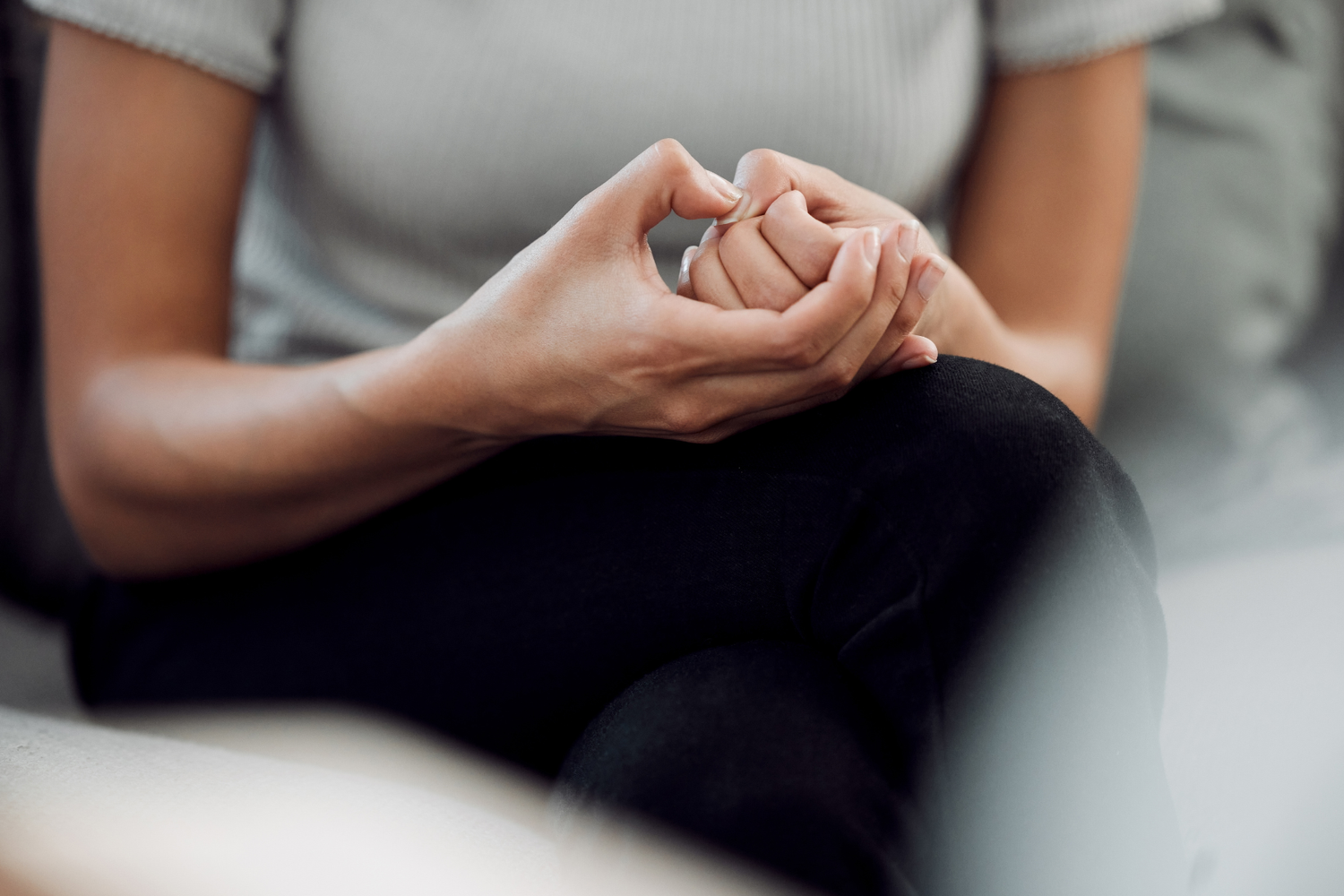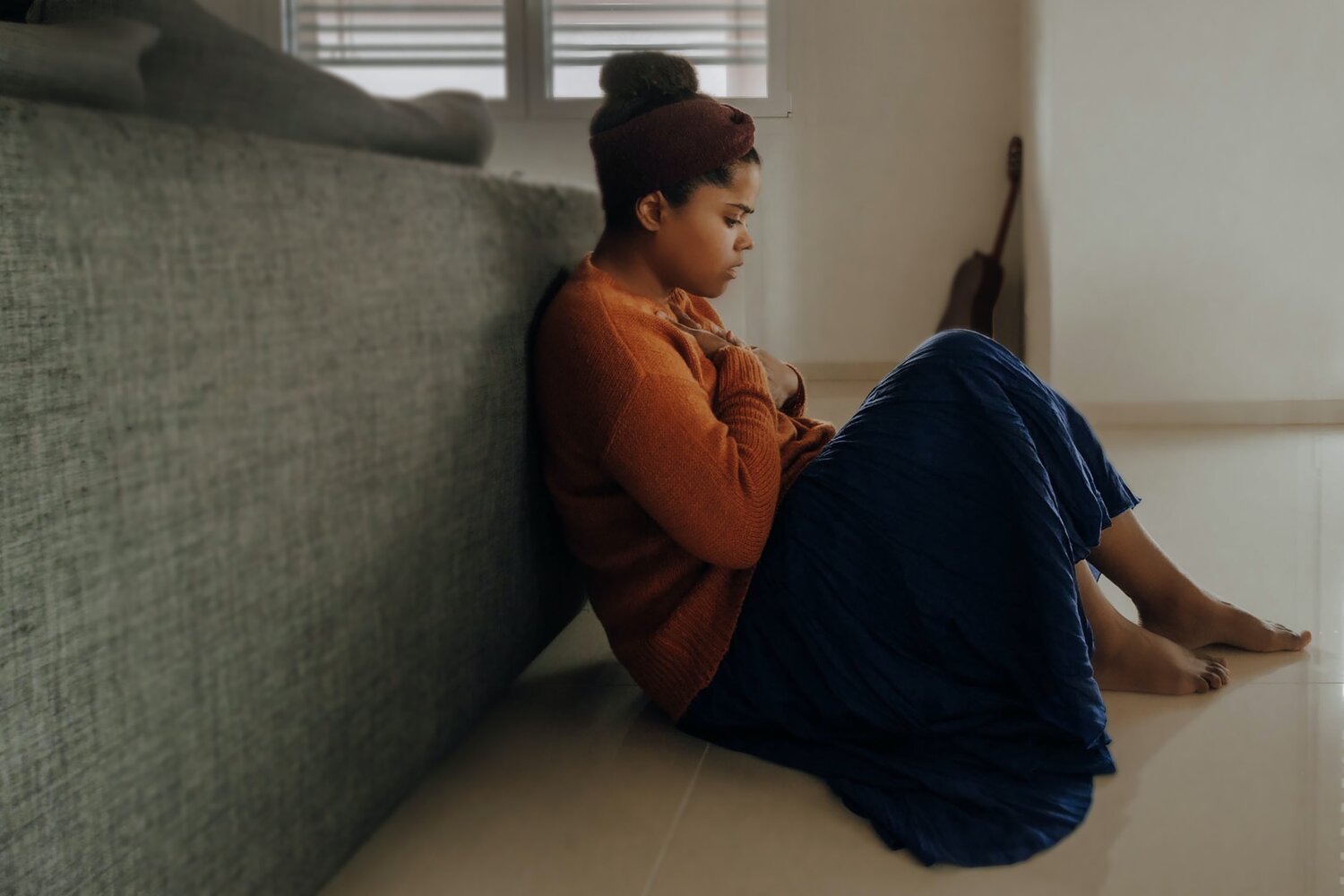
Therapy for Anxiety
UNDERSTANDING ANXIETY
Anxiety, or extreme apprehension and worry, is a normal reaction to stressful life situations. When anxiety starts to interfere with daily life, therapy for anxiety can help.
In some cases, worry becomes pervasive and chronic, causing anxiety attacks in everyday situations and developing into a more severe issue. Unchecked and untreated anxiety can lead to Panic Disorders, Social Phobias, Obsessive-Compulsive Disorder, Simple Phobias (such as medical phobias or air travel), Generalized Anxiety Disorder, and Post-traumatic Stress Disorder (PTSD).
Anxiety can also lead to panic attacks—severe episodes of anxiety that occur in response to specific triggers. Anxiety so frequently co-occurs with depression that the two are thought to be twin faces of one issue. Anxiety is also twice as likely to impact women than men.
Therapy for Anxiety in California, New York, and Online in 40 States

HOW DOES ANXIETY IMPACT MY WELL-BEING?
Untreated anxiety can be very detrimental to overall health and well-being. Typically, those who suffer from prolonged anxiety experience a range of symptoms, including excessive worry about health, money, family, work, or school performance, even when there are no signs of trouble. Anxiety can also produce the following mental and physical symptoms:
Irrational expectations of the worst outcomes
Inability to relax
Irritability
Insomnia
Tiredness
Headaches
Muscle tension
Difficulty swallowing
Trembling or twitching
Frequent urination
WHAT CAUSES ANXIETY?
In people with severe anxiety, the brain circuitry that controls the threat response goes awry. At the heart of the circuit is the amygdala, a structure that flags incoming signals as worrisome and communicates with other parts of the brain to put the body on alert. Early life events, especially traumatic ones, can impact the circuitry so that it becomes oversensitive and sends out alarms too frequently.
While the normal human brain perceives threats in a regular fashion in order to survive, those with anxiety see threats where there aren't any, perhaps because emotional memories affect their perceptions.
IS ANXIETY TREATABLE?
Absolutely! In fact, anxiety is the most common reason for individuals seeking mental health treatment, according to the National Institute of Mental Health. Nearly 30% of adults will experience severe anxiety at some point in their lives. The good news is that therapy for anxiety helps most people lead normal productive lives.
Although each type of anxiety has unique characteristics, most types of anxiety respond well to ongoing persistent treatment. At Thrive, we recommend Cognitive behavior therapy (CBT), to help you learn a different way of thinking, reacting and behaving, as well as mindfulness-based treatments such as MBCT and MBSR. In the case of PTSD and other trauma, we also recommend EMDR therapy as an effective method of treatment.
If you are experiencing anxiety, you don’t have to suffer any longer. Reach out today. We can set you on your path toward overcoming anxiety.
What Is The Best Therapy for Anxiety?
-

Cognitive-Behavioral Therapy (CBT) for Anxiety
CBT is a widely recognized and effective form of therapy for anxiety. It focuses on identifying and challenging negative thought patterns and behaviors associated with anxiety.
How it Works: Therapists work collaboratively with individuals to reframe negative thinking and develop coping strategies. CBT equips individuals with practical tools to manage anxiety in real-life situations.
-

Eye Movement Desensitization and Reprocessing (EMDR) for Anxiety
EMDR is particularly beneficial for individuals with anxiety stemming from past traumas. It involves bilateral stimulation, typically through eye movements, to process distressing memories.
How it Works: EMDR helps individuals reprocess traumatic memories, reducing their emotional impact. This can alleviate anxiety symptoms related to past experiences.
-

Mindfulness-Based Therapy for Anxiety:
Mindfulness-based approaches, such as Mindfulness-Based Stress Reduction (MBSR), emphasize being present in the moment without judgment.
How it Works: Mindfulness techniques, including meditation and breathing exercises, help individuals cultivate awareness and reduce anxiety by focusing on the present rather than worrying about the future.
Can You Do Online Therapy for Anxiety?
Absolutely, online therapy is a viable and increasingly popular option for individuals seeking anxiety treatment. The digital landscape has revolutionized the way mental health services are delivered, making therapy accessible from the comfort of one's own space.
Online vs In-Person Anxiety Therapy:
Virtual Environment: One of the key distinctions is the virtual setting. Online anxiety therapy allows individuals to connect with licensed therapists through video conferencing platforms, chat, or phone calls. This flexibility can be particularly beneficial for those with anxiety who may find it challenging to attend in-person sessions due to specific triggers or social discomfort.
Accessibility: Online therapy eliminates geographical barriers, making specialized anxiety treatment more accessible to individuals in remote areas or those with mobility constraints.
Comfort and Familiarity: Being in a familiar environment during online sessions can create a sense of comfort for individuals dealing with anxiety. This can contribute to a more relaxed and open therapeutic experience.
How Online Anxiety Therapy Works:
Assessment and Diagnosis: Online anxiety therapy typically begins with an assessment phase where the therapist gathers information about the individual's symptoms, triggers, and overall mental health history. This aids in formulating a personalized treatment plan.
Therapeutic Techniques: Therapists employ evidence-based techniques such as Cognitive Behavioral Therapy (CBT), mindfulness, and relaxation exercises in online sessions. These methods are adapted to suit the virtual format, ensuring their effectiveness.
Homework Assignments: Therapists may assign homework exercises and activities to reinforce the coping strategies discussed during sessions. These assignments are designed to promote consistent progress between sessions.
What a Therapy Session is Like:
Interactive Communication: Online sessions often involve real-time, face-to-face communication through video calls. This interactive format allows therapists to observe non-verbal cues and build a strong therapeutic alliance.
Privacy and Confidentiality: Confidentiality is a paramount consideration in online therapy. Platforms used for virtual sessions adhere to strict privacy standards to ensure that personal information remains secure.
Flexibility: Online therapy provides scheduling flexibility, accommodating individuals with busy lifestyles. This flexibility can be especially beneficial for those managing work, education, or family commitments.
How to Find an Online Anxiety Therapist
When searching for an online anxiety therapist, it's crucial to consider key factors to ensure the best fit for your needs. Look for therapists with specific expertise in anxiety treatment, inquire about their qualifications and experience, and ask questions about their therapeutic approach. Verify their licensing and credentials, and explore their communication style to ensure a comfortable and effective therapeutic relationship. Choosing a qualified and experienced online anxiety therapist is essential for a positive and impactful therapeutic experience.
THERAPY FOR ANXIETY FAQs
-
Yes, online therapy has proven to be https://www.mythrivepsychology.com/thrive-blog/does-online-therapy-workzeffective for anxiety. It offers convenience and accessibility, allowing individuals to receive professional support from the comfort of their own space. Research indicates that online therapy can be as beneficial as in-person sessions for managing anxiety.
-
The most successful therapy for anxiety often depends on individual preferences and the specific nature of the anxiety. Cognitive-Behavioral Therapy (CBT) is widely recognized for its effectiveness, but other modalities like Exposure Therapy, Mindfulness-Based Therapies, and Acceptance and Commitment Therapy (ACT) can also be highly successful. It's essential to work with a therapist to determine the best approach for your unique situation.
-
While complete "cure" might not be a universally applicable term for anxiety, many individuals find relief through natural approaches. Lifestyle changes, stress management techniques, regular exercise, and mindfulness practices can significantly reduce anxiety symptoms. It's advisable to consult with a healthcare professional to create a comprehensive, personalized plan.
-
Consider seeking therapy for anxiety if it significantly impacts your daily life, relationships, or overall well-being. Signs include persistent worry, physical symptoms, difficulty concentrating, and changes in sleep patterns. It's never too early to seek support, and therapy can provide valuable tools to manage anxiety effectively.
Feel free to reach out for more information tailored to your specific needs.
Learn more about therapy for anxiety on our blog
-

Unmasking the Common Physical Symptoms of Anxiety
In this blog, we will navigate through the physical symptoms of anxiety, shedding light on the common symptoms that many individuals experience. Through knowledge and awareness, we empower ourselves to recognize, manage, and ultimately conquer the physical manifestations of anxiety. Let's embark on this enlightening journey together, where understanding meets healing, and resilience triumphs over fear.
-

Empowering Strategies:How to Manage Anxiety Without Medication
In this blog, we will embark on a transformative journey together – a journey toward managing anxiety without medication. Here, we delve deep into the realm of mindfulness, self-care, and resilience. We explore practical techniques, therapeutic methods, and lifestyle changes that can alleviate the grip of anxiety and bring about a profound sense of calm and balance.
-

Best Exercises to Help Anxiety
If you’re struggling with anxiety, you’ve probably looked into many options to find relief, from therapy and medication to more natural anxiety solutions. Today, explore our guide to the best exercises to help anxiety.
-

How to Tell If You Have Anxiety
Welcome to our exploration of the intricate world of anxiety, where understanding its nuances becomes a guiding light amid life's uncertainties. If you’re struggling, it can be hard to figure out how to tell if you have anxiety or if there’s something else going on.











